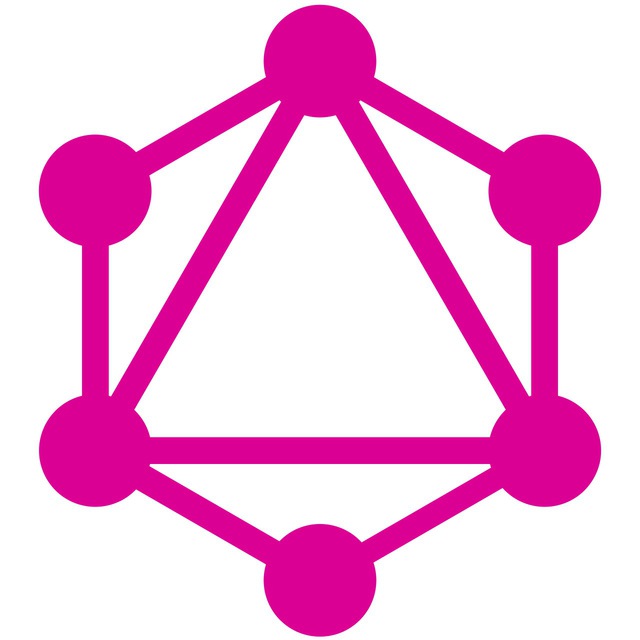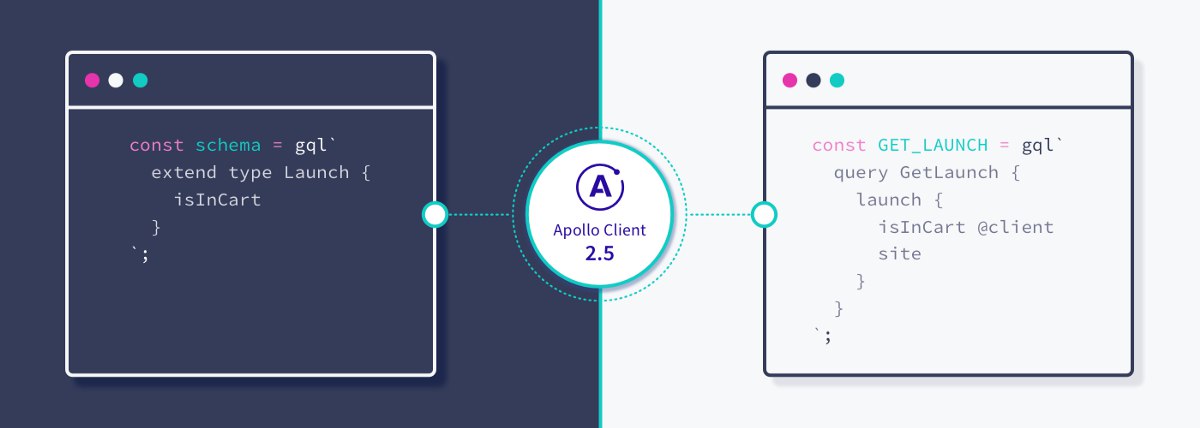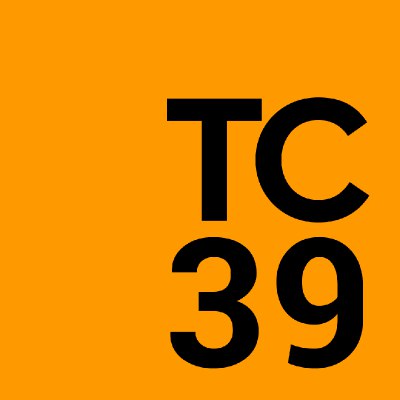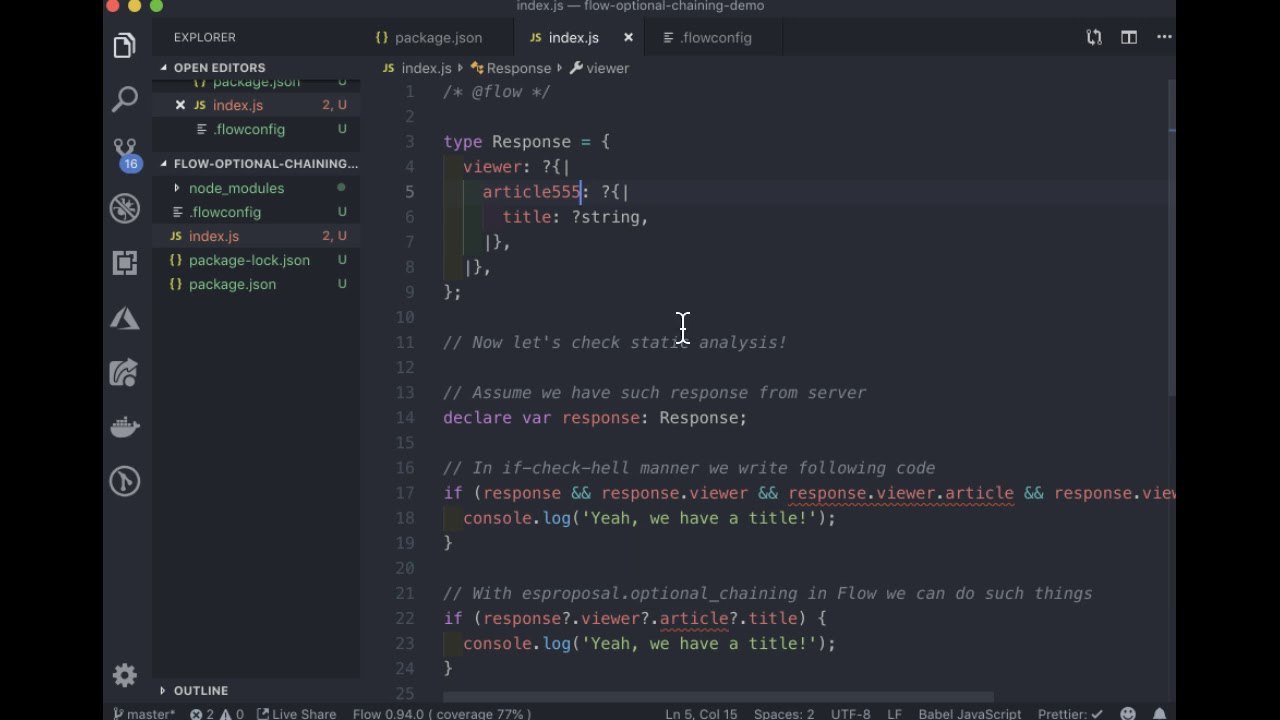g
Size: a a a
2019 February 28
apollographql/react-apollo v2.4.0 → v2.5.1 🎉
EK
Вчера пытался руками поставить плагин
Сегодня решил проблему, решив воспользоваться cli gql-gen, прописав
Я рад, потому что более идеальной генерации для клиента я не нашел. Этот генератор создает компоненты с типизацией. Кто еще не пробовал, очень советую!
graphql-codegen-typescript-stencil-apollo для graphql-code-generator, в итоге адекватного ничего не вышло, ничего не работало.Сегодня решил проблему, решив воспользоваться cli gql-gen, прописав
gql-gen init, ответил на вопросы, мне сгененрировался настроенный конфиг. В итоге он поставил старый плагин, который deprecated, но он хотя бы работает :)Я рад, потому что более идеальной генерации для клиента я не нашел. Этот генератор создает компоненты с типизацией. Кто еще не пробовал, очень советую!
NT
apollographql/react-apollo v2.4.0 → v2.5.1 🎉
а была новость о том, что Apollo Client 2.5 вышел?
2019 March 01
P@
Народ проголосуйте плиз за реализацию OptionalChaining в ТайпСкрипте у кого есть гитхаб
https://github.com/Microsoft/TypeScript/issues/30167
Просто поставьте ❤️ 👍 вещь отличная. Но нужны голоса чтоб продавить фичу.
https://github.com/Microsoft/TypeScript/issues/30167
Просто поставьте ❤️ 👍 вещь отличная. Но нужны голоса чтоб продавить фичу.
A
Народ проголосуйте плиз за реализацию OptionalChaining в ТайпСкрипте у кого есть гитхаб
https://github.com/Microsoft/TypeScript/issues/30167
Просто поставьте ❤️ 👍 вещь отличная. Но нужны голоса чтоб продавить фичу.
https://github.com/Microsoft/TypeScript/issues/30167
Просто поставьте ❤️ 👍 вещь отличная. Но нужны голоса чтоб продавить фичу.
Лучше не надо, фича спорная, до сих пор не определились с синтаксисом
A
Как минимум тот вариант что предложен сильно усложняет парсер который будет пытаться отличить опшинал от тернарки
P@
Конкретно с
static property access уже определились. То что именно я прошу для GraphQL. А спорные ньюнсы с вызовом методов, нафиг не нужны и можно даже не завозаить пока точно не договорятся.P@
Эта тема уже год работает во Flow и просто очень больно без нее в ТайпСкрипте.
A
Конкретно с
static property access уже определились. То что именно я прошу для GraphQL. А спорные ньюнсы с вызовом методов, нафиг не нужны и можно даже не завозаить пока точно не договорятся.Просто может оказатся что в стедж экмы уйдет другой синтаксис и это будет фейл
e
Народ проголосуйте плиз за реализацию OptionalChaining в ТайпСкрипте у кого есть гитхаб
https://github.com/Microsoft/TypeScript/issues/30167
Просто поставьте ❤️ 👍 вещь отличная. Но нужны голоса чтоб продавить фичу.
https://github.com/Microsoft/TypeScript/issues/30167
Просто поставьте ❤️ 👍 вещь отличная. Но нужны голоса чтоб продавить фичу.
Есть же удобный non-null-assertion
P@
Есть же удобный non-null-assertion
Пример кода в студию, пожалуйста
e
Все, я понял о чем речь, увидел примеры, non null assertion не все кейсы покрывает :)
AO
Versioning
While there's nothing that prevents a GraphQL service from being versioned just like any other REST API, GraphQL takes a strong opinion on avoiding versioning by providing the tools for the continuous evolution of a GraphQL schema.
Why do most APIs version? When there's limited control over the data that's returned from an API endpoint, any change can be considered a breaking change, and breaking changes require a new version. If adding new features to an API requires a new version, then a tradeoff emerges between releasing often and having many incremental versions versus the understandability and maintainability of the API.
In contrast, GraphQL only returns the data that's explicitly requested, so new capabilities can be added via new types and new fields on those types without creating a breaking change. This has led to a common practice of always avoiding breaking changes and serving a versionless API.
источник: https://graphql.org/learn/best-practices/
вопрос: а как принято выводить из эксплуатации что-то старое и ненужное?, куски старого кода или какие-то части API, которые уже не актуальны
VK
Кто юзал сабскрипшны на apollo-server, ни у кого не было ошибки
Invalid value used as weak map key ?P@
Видясик накалякал, чтоб понятнее было где optional-chaining спасает
https://www.youtube.com/watch?v=NzlDE3cWnDc&feature=youtu.be
https://www.youtube.com/watch?v=NzlDE3cWnDc&feature=youtu.be
P@
Проголосовать за Optional Chaining все еще можно тут.
Совсем чутка до сотни 👍 не хватает.
https://github.com/Microsoft/TypeScript/issues/30167
Совсем чутка до сотни 👍 не хватает.
https://github.com/Microsoft/TypeScript/issues/30167






